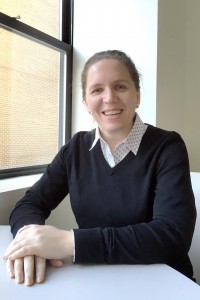My first semester at MIIS has been one of the most rewarding experiences both professionally and personally. Alongside rigorous professional training, I was fortunate enough to have worked closely with Career and Academic Advisor, Winnie Heh. I learned a great deal through her Career Management classes and the projects we worked on together, while working at the Center for Advising and Career Services.
I would like to share with you the 3 major takeaways that inspired me to redefine how I approach my career path.
1.Know yourself.
Start with the basics. Discover what matters to you, what you enjoy doing and be open to new possibilities. There are so many places your language skills can take you; it may seem overwhelming at first, but the key to career success is in knowing yourself and what you want to be doing. Keep in mind that your career is not static; it’s going to constantly change in ways you would have never imagined.
Here is an example from my personal experience. I came to MIIS thinking I wanted to work as an interpreter for the EU or the UN. What I didn’t realize at the time was that Localization was such a promising field and could truly help me leverage both my language skills and management experience. As I got involved in various projects, I realized that the TLM profession is a window into the larger picture. This program may not be for everyone, but it is merely an example of how your career goals can change and why you should be open to new ideas.
2. Be intentional.
Whatever journey you embark on, always have a goal and build you decisions around it. Ask yourself: Where do I want to be in 5 years? This isn’t just a question someone asks you at an interview. It really matters that you know this for yourself.
Think about the following things when looking for a job or internship:
- What am I good at? What do I like doing?
- What are companies looking for? It is useful to look at job descriptions for the field you’d like to work in.
- What company would I want to work for? Come up with a hit list!
This all ties into knowing yourself. By answering these questions, you will identify your marketable skills and be able to position yourself by articulating what value you are bringing to the team.
3. Create long-lasting relationships.
Try to take advantage of every opportunity while you’re at MIIS (and after you graduate) to create long-lasting relationships with alumni, students, faculty, etc. They will be your windows into new opportunities. Most importantly, keep your LinkedIn profile up to date and be active!
These 3 major lessons have helped me shape a “career-driven employment” mentality that goes way beyond finding a simple job after you graduate. Every resource you are given here at MIIS will go toward your long-term career goals. Take advantage of it!
Gayané ‘Gaya’ Saghatelyan
MA Translation & Localization Management – French, 2017
Middlebury Institute of International Studies at Monterey



